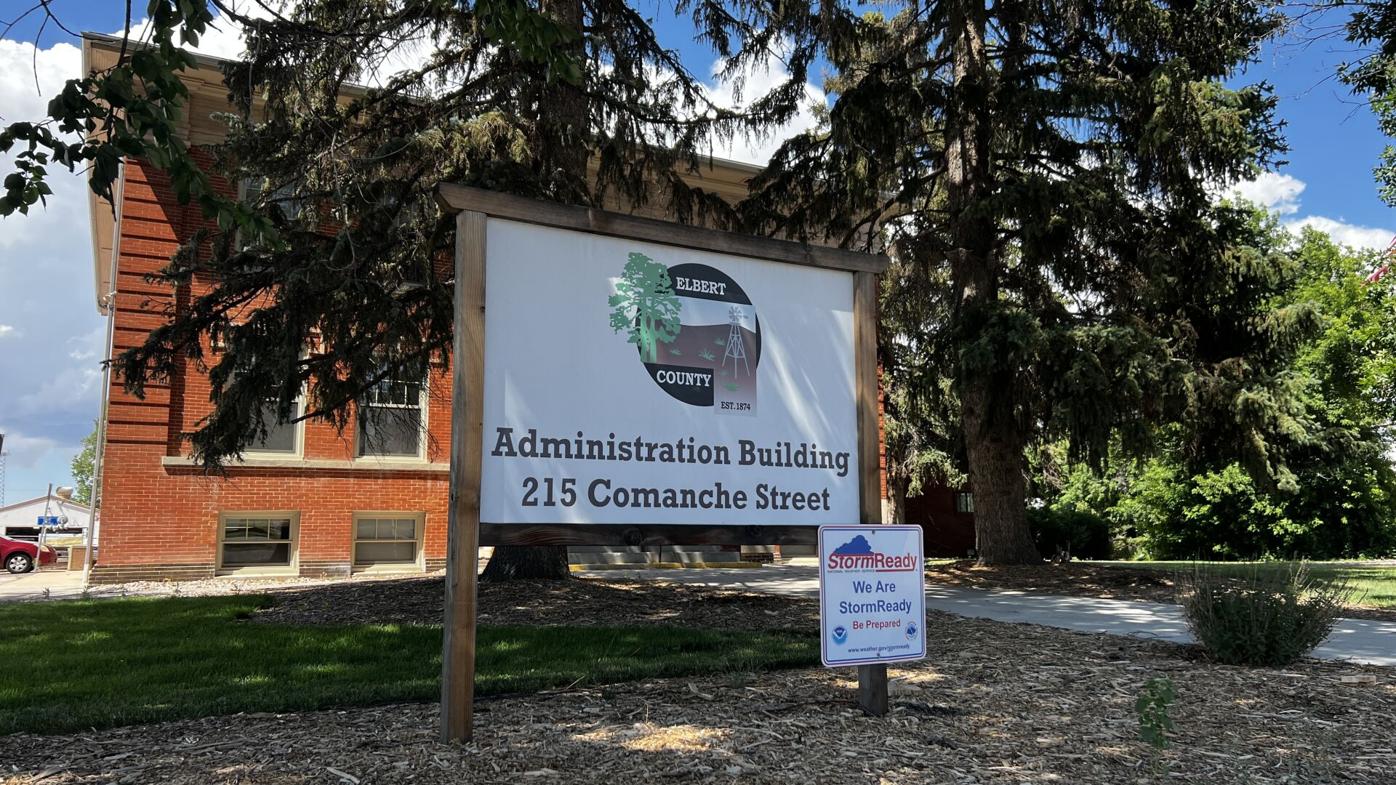Elbert County sheriff, commissioners settle ‘overreach’ case
The Elbert County Sheriff’s Office, the Board of County Commissioners and its county manager have settled an almost year-long lawsuit alleging county “overreached” with regard to the selection and discipline of Sheriff’s Office employees, court documents showed.
The lawsuit, filed late last year by the Elbert County Sheriff’s Office and Sheriff Timothy Norton, in his official capacity, challenged the authority of the the county commission and County Manager Shawn Fletcher to “interfere” with Norton’s statutory right to hire, fire and oversee the activities and disciplinary actions of his law enforcement officers and departmental staff.
County officials told The Denver Gazette that they are ready to move on.
“Our Board’s focus is on the funding and delivery of exceptional, responsive, and effective law enforcement, emergency management, and all aspects of community safety — top priorities for those we mutually serve with our Sheriff,” a county official said in an emailed statement. “We are pleased this legal matter is now in the rearview mirror.”
Norton’s legal action also raised questions about whether Fletcher and County Human Resources Manager Delores Grady possessed the power to override Norton’s authority to direct and assign responsibilities to those employed within the ECSO.
Legal experts noted cases like this are often complicated because sheriffs and county commissioners are elected officials who are “treated as separate public entities having different powers and responsibilities.”
In the suit, Norton also alleged that Fletcher, with support from the commission, launched a campaign of harassment and a series of overreaching retaliatory measures stemming from pushback on an email from Grady demanding the Sheriff’s office comply with the county’s newly minted disciplinary policy.
After Norton informed Fletcher that law enforcement officers and associated staff under his charge were not subject to county disciplinary policies but rather the policies of the Elbert County Sheriff’s Office, Norton alleged in court documents that his department’s access to the payroll system was denied.
Among the terms agreed to in the standing declaratory judgment is that the sheriff “shall have final decision-making authority in relation to personnel policies of the ECSO, including but not limited to hiring, supervising, disciplining, testing of any kind, and termination of employment for personnel of the ECSO,” court documents filed this month showed.
The judgment added that “neither the county, any department of the county, nor the BOCC shall adopt and/or enforce a policy that would interfere with that authority.”
Additionally, the county will pay for a third-party audit of all ECSO written policies relating to law enforcement operations and employment, regardless of topic, and to make written non-final recommendations to the sheriff, with a copy to the commission in relation to how the policies of the sheriff and ECSO could be improved.
And in exchange for Norton’s waiver to seek damages on behalf of himself and the Elbert County Sheriff’s Office, the court documents said the county will pay all legal fees, costs and expenses for all parties to the lawsuit, with no legal fees, costs, or expenses deducted from the ECSO budget.
At least once per calendar year, the BOCC will conduct an in-person visual inspection of the Elbert County Detention Facility, and the BOCC shall correct all “irregularities and improprieties” found during the inspection.
The judgment also updated local polices related to the investigation of accidents involving county-owned vehicles.
In January, an Elbert County deputy was forced off a snow-covered highway while driving his patrol vehicle. No injuries or other vehicles were damaged. The incident was investigated by the Colorado State Patrol. There was no reasonable suspicion of drug or alcohol use, and no citations were issued, according to court documents.
Fletcher demanded to know why the deputy was not subject to a post-accident drug and alcohol test, per county policy. Norton reiterated that law enforcement officers under his charge were not subject to county disciplinary policy.
Shortly after the disagreement, court documents alleged that Fletcher hired two separate investigative companies, costing the county $24,000, to scrutinize the ECSO’s operations, deputies, and staff. In the end, the companies produced “no actionable results.”
Furthermore, the original lawsuit asserted that Fletcher, the commission, and County Attorney Bart Greer intentionally withheld investigation results from Sheriff Norton, despite repeated requests and subsequent open records requests from Elbert County Undersheriff David Fisher.
Norton’s attorney pointed out that two years earlier, County Attorney Bart Greer struck another employee’s vehicle on county property and then left the scene of the accident. The employee reported the accident to the ECSO. The following day, the employee confronted Greer who admitted to the incident and offered the employee $500 cash to settle the incident.
Greer was never subject to a drug or alcohol test, documents stated.
Court documents also alleged that “based upon information and belief, Mr. Greer would shortly thereafter draft the documentation for the employee’s termination.”
Greer, who had served as the Elbert County attorney for more than eight years, was “separated” from the county “without cause” on June 1.
The Denver Gazette reached out to Norton for comment; the sheriff did not immediately respond.





